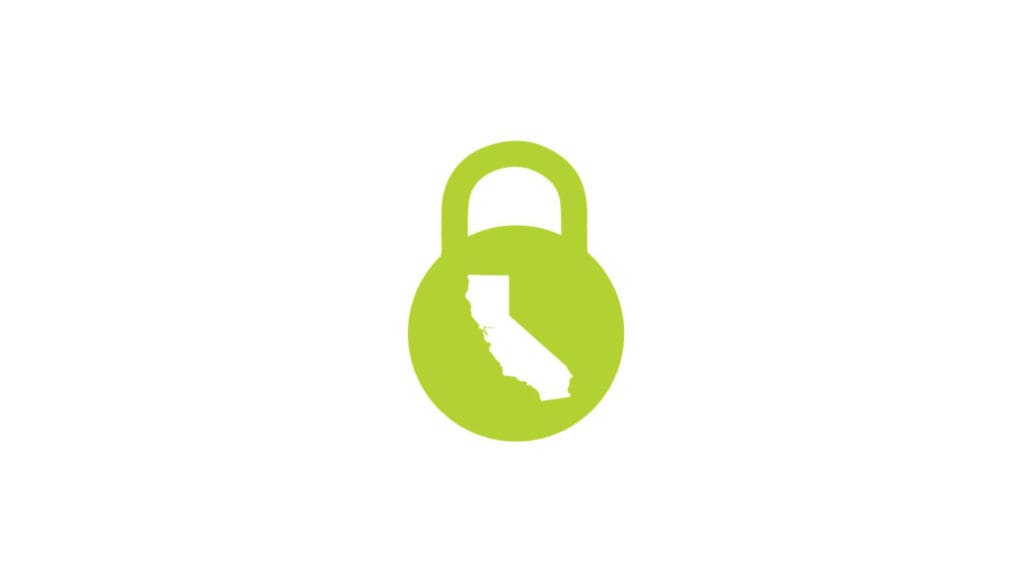
Consent Management Platforms: What You Must Know Today
You know those pop-ups you see when you first land on a website? The ones that say something like, “This website uses cookies, blah, blah…” This little “cookie banner” has become the center of a growing area of digital marketing compliance that brands cannot ignore because this cookie banner and what it represents is at the center of global data privacy regulation. And as regulations are implemented across the world and back home in individual states, the increase in privacy-related litigation has become noteworthy. So, in this edition of Plain Talk, we will dig into the somewhat murky world of “consent management” and what marketers need to know to stay out of hot water. We’ll answer questions like:
- What Is Consent Management, and Why Should Marketers Care?
- What Is a Consent Management Platform (CMP)?
- How To Choose a CMP
- Get Expert Help With Your Consent Management Platform
What Is Consent Management, and Why Should Marketers Care?
PriceWeber’s Plain Talk has tracked and reported on the changing privacy landscape over the past several years. Strict privacy laws for European Union countries, under the GDPR, first set regulations on how companies could use data on individuals and provided those people with the option to opt out of their data use entirely. Then, in the US, California passed a similar law called the California Consumer Privacy Act (CCPA).
While the Federal government has yet to put forward any legislation that has a chance of passing, twenty states as of this writing now have comprehensive data privacy laws, including California, Colorado, Texas, Florida, New Jersey, Illinois, and Virginia. Each of these laws governs how businesses operating in their state must manage how consumers can consent or decline to allow brands to use their personally identifiable information (PII). This process of informing consumers, capturing their consent, and providing access to how data is used is consent management in a nutshell. So why should we care?
It’s the law
- For companies operating nationally, CCPA has essentially been a “national” law since it went into effect in January 2023. With 20 states all having similar and comprehensive laws on the books, the number of places where data privacy and consent management are absent is quickly shrinking. The flip side to the fact that, of course, we want to follow the law is that brands that do not can now face both regulatory fines and consumer lawsuits.
- In recent years, privacy-related litigation has seen a significant rise. A notable example is the California Attorney General’s case against Sephora, which resulted in a $1.2 million settlement for non-compliance with the CCPA. The Sephora case underscores how failing to properly disclose data practices and comply with consumer privacy laws can lead to costly legal consequences.
Cookies aren’t dead (yet)
- Remember when Google said it was getting rid of third-party cookies, and we all started to scramble to gather as much first-party data as possible? While Google pulled the plug on cookies for now, marketers have prepared for that world. We’ve all gathered terabytes of consumer data. Consent management helps us use the data we collect legally for everything from consumer segmentation to media planning and new product development.
The soft costs
- As privacy continues to be an issue in the public eye, companies who experience fines or litigation as a result of violating their customer’s privacy can pay a very real price in the form of lost trust and damaged reputations.
- Consumers today are acutely aware of how their personal information is collected and used. They know how frequent data breaches are and how they can impact their online security. By implementing a robust consent management platform, brands demonstrate their commitment to safeguarding user privacy.
- Ethical data protection also signals that you value customer trust and respect their rights.
What Is a Consent Management Platform (CMP)?
Most CMPs offer users the opportunity to manage the lifecycle of your consumer’s data permissions from cradle to grave, ensuring you don’t run afoul of your customers or the law. This includes:
Consent capture
- Consent banners/pop-ups: Displays clear, legally compliant pop-up banners that allow users to accept or reject the use of cookies and tracking technologies on your website.
- Granular consent: Captures user consent for different types of data collection and usage, such as marketing, analytics, and essential cookies.
Consent revocation and management
- Revoking consent: This feature enables users to withdraw their consent at any time, with simple options to change or revoke permissions.
- User preferences dashboard: Provides users with access to manage or update their consent choices after the initial interaction.
Regulatory compliance
- Global privacy law compliance: Ensures adherence to various regulations (e.g., GDPR, CCPA) by adjusting consent requests based on a user’s location and the relevant laws.
- Geolocation-based consent: Customizes consent banners and processes according to the user’s geographic region to comply with local data laws (e.g. Texas data privacy for local Texas companies).
Consent logs and audit trails
- Detailed audit trails: Keeps a record of when and how consent was obtained, including user choices, for legal compliance and transparency.
- Proof of consent: Provides documentation of user consent for audits and legal challenges.
Cookie scanning and classification
- Cookie identification: Automatically scans the website to detect all active cookies and tracking technologies.
- Cookie categorization: Classifies cookies into functional, analytics, or marketing categories to provide users with clear information.
Dynamic consent management
- Real-time updates: Automatically adapts to user consent preferences as they change, ensuring compliance is always up to date.
- Version control: Maintains records of previous consent versions to track any changes over time.
How To Choose a Consent Management Platform
Consent management platforms (CMPs) have become invaluable tools for many marketers who legally collect and handle user data. A good CMP allows you to manage all aspects of consent while also seamlessly integrating with your website or app.
When selecting a CMP, consider the following factors:
- Ease of Integration: How easily does it integrate with your current website setup? Platforms like OneTrust or Cookiebot, for instance, offer plugins for major CMSs like WordPress.
- Customization and User Experience: Consent forms should be easy for users to understand and navigate. A CMP that allows customization of the appearance and text of consent banners will help maintain a user-friendly experience while ensuring compliance.
- Compliance Across Jurisdictions: Make sure your CMP supports compliance with multiple privacy laws. Many businesses operate globally, and privacy regulations vary from region to region.
- Reporting and Auditing: It’s important to maintain a detailed audit trail of user consent. In the event of a lawsuit, this data will serve as proof that your business followed the correct processes.
- Affordability: Not all businesses need a top-tier CMP with every feature imaginable. Some solutions offer tiered pricing based on the number of site visitors or the range of features required, allowing businesses to choose what best fits their needs.
Best consent management platforms
Here are a few CMPs to consider:
- iubenda: A powerful, easy-to-implement CMP that streamlines compliance with customizable consent banners and privacy policies.
- OneTrust: A leader in the space, offering a comprehensive platform that covers GDPR, CCPA, and more. It’s feature-rich but can be on the pricier side.
- Cookiebot: Known for its user-friendly interface and ease of integration, especially with WordPress and other CMS platforms.
- Quantcast Choice: A free CMP solution that is widely used and respected, though it might not offer the advanced features that larger corporations need.
But are CMPs here to stay? Afraid so. As data privacy continues to evolve, these platforms are the safest and most reliable way to remain compliant and to help safeguard against legal action and customer blowback. The market demand for these platforms seems to agree as sales for CMPs in 2024 approach one billion dollars.
Get Expert Help With Your Consent Management Platform
If you are considering exploring what CMP might be right for you, give us a call at 502-499-4209 or drop us a note here, and we’ll point you in the right direction.
Our Articles Delivered
Signup to receive our latest articles right in your inbox.






